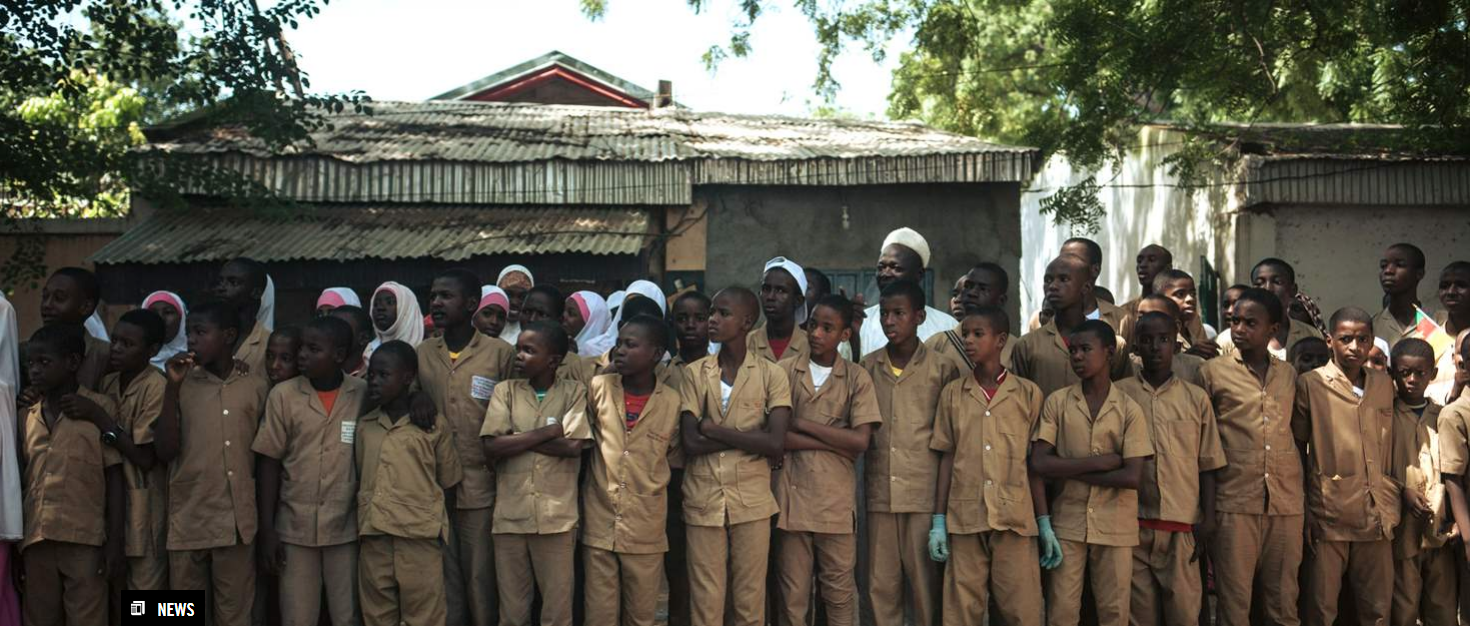Presidential election in Cameroon on Sunday 7 October
123 civilians killed by Boko Haram so far this year in Far North region where 230,000 people are internally displaced
More than 400 people killed in Anglophone regions this year
Cameroon’s next government must urgently tackle human rights crises in which hundreds of civilians have been killed this year alone and thousands internally displaced amid violence by security forces, Boko Haram and armed separatists in the country’s Far North and Anglophone regions, Amnesty International said ahead of Sunday’s presidential election.
“Whoever wins the election cannot ignore the perilous situation for people living in the Far North and Anglophone regions and must prioritize their protection,” said Samira Daoud, Amnesty International Deputy regional director for West and Central Africa.
“For far too long, numerous human rights abuses, including arbitrary detention, torture, enforced disappearances and extrajudicial killings have been committed with impunity in three of Cameroon’s regions and the next government must take urgent action to end these human rights crises.”
On Sunday 7 October, Cameroonians will elect a president for the next seven years. There are nine candidates including the incumbent President Paul Biya. Sunday’s election takes place against a backdrop of violence in both the Far North and Anglophone regions.
Some political opponents to President Paul Biya, including the president of one of the main opposition parties in northern Cameroon, Aboubacary Siddiki, are still in detention on trumped-up charges.
Security situation remains perilous in the North
Since the beginning of the year, Amnesty International has recorded more than 90 violent incidents involving the armed group Boko Haram in the Far North of Cameroon.
These include five suicide bomb attacks and raids resulting in the killing of 123 civilians in 2018 so far, along with the destruction and looting of private and public properties.
In 2017, there were 111 Boko Haram-related incidents – 41 of which were suicide bombs attacks – with 201 civilians killed. Despite the year-on-year decrease in the number of attacks, the situation remains fragile in the Far North and Boko Haram still constitutes a threat for civilians.
The humanitarian situation in the Far North is bleak with overall more than 230,000 people internally displaced. Some 98,000 Nigerian refugees are also hosted in the Far North.
Extrajudicial killings and enforced disappearances
In response to Boko Haram attacks, Cameroonian security forces have raided villages in the Far North, destroying homes, killing civilians and arbitrarily detaining thousands of suspects, often on the basis of little or no evidence.
Among the more recent examples of human rights violations perpetrated by the Cameroonian security forces and uncovered by Amnesty International is the extrajudicial killing of four civilians and the enforced disappearances of two others on 26 June 2018 in the village of Mouri in the Far North.
On that day, soldiers from the regular army, accompanied by about 10 vigilantes fired at three unarmed men, among whom the chief of the village, injuring them seriously. Then, they arrested four other men and took them out of the village. The vigilantes came back later in the afternoon and arrested two others. Three days after the incident, four bodies were discovered by herders who recognized the men among those arrested on 26 June. The two others never came back. Amnesty International has clearly identified at least three vigilantes aged between 36 and 47.
In July, an investigation by Amnesty International experts confirmed that Cameroonian soldiers were depicted in a video carrying out the brutal extrajudicial executions of two women and two young children.
Also, a horrifying video obtained and authenticated by Amnesty International in August showed Cameroonian soldiers killing at least a dozen unarmed men during a military operation in the village of Achigachia. The organization had already documented the case depicted in the video in its 2016 report Cameroon: Right cause, wrong means: Human Rights violated and justice denied in the fight against Boko Haram.
Anglophone region plagued by violence
In the Anglophone regions, Amnesty International has recorded over 360 violent incidents since the beginning of the crisis in late October 2016. More than 400 people have been killed in the past year, while the violence has resulted in total in the internal displacement of more than 240,000 people across the North West and South West regions of Cameroon, in addition to some 25,000 having fled to Nigeria. All are in dire need of humanitarian assistance.
Security forces have committed serious human rights violations, such as unnecessary use of force during peaceful demonstrations and in search operations that have resulted in arbitrary arrests, unlawful killings and the burning of dozens of villages.
On 24 September, at least two unarmed men were unlawfully killed by soldiers of the Rapid Intervention Battalion in an area of Buea known as Great Soppo. On 23 September, security forces undertook search operations in two neighborhoods in the capital Yaoundé which led to mass arbitrary arrests of over 50 Anglophone people. They were released on 24 September but only after giving money to security forces.
Armed separatist groups have also been responsible for acts of violence such as killings of security forces and ordinary people, kidnappings of state officials, students and teachers, and destruction of school buildings, gendarmerie and police stations, and military vehicles.
Amnesty International has also observed that armed separatists have become more organized with more deadly and effective weapons, including long range scoped rifles and PKM machine guns, some of which were seized from the Cameroonian security forces.
“If the incoming administration subsequent to the election outcome wants to end the impunity that has fuelled years of violence in the Far North and Anglophone regions, it must ensure that members of armed groups, security forces and others suspected of involvement in human rights abuses are brought to justice and victims compensated,” said Samira Daoud.
For more information please contact Lucy Scholey, Amnesty International Canada (English): +1 613-744-7667 ext. 236; lscholey@amnesty.ca






















